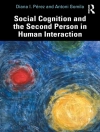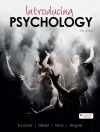Negative, distorted self-images are a key feature of social anxiety disorder (SAD)–and working with imagery can make cognitive-behavioral therapy (CBT) more effective for those who struggle with this debilitating problem. This book presents an innovative modular framework that incorporates vivid multisensory imagery into all aspects of treatment. Step-by-step guidance for implementing this evidence-based approach with individuals or groups is illustrated with rich case material. In a large-size format for easy photocopying, the book includes 35 reproducible worksheets and handouts. Purchasers get access to a Web page where they can download and print the reproducible materials.
Inhaltsverzeichnis
I. Overview of Social Anxiety and Its Treatment 1. What Is Social Anxiety Disorder? 2. Cognitive-Behavioral Models and Treatments for SAD 3. Overview of Imagery-Enhanced CBT for SAD II. Treatment Modules 4. Socializing Clients to the Treatment Model 5. Negative Thoughts and Images 6. Avoidance and Safety Behaviors 7. Negative Self-Image 8. Attention Biases 9. Negative Core Beliefs 10. Maintenance and Relapse Prevention Appendix. Reproducible Worksheets and Handouts
Über den Autor
Peter M. Mc Evoy, Ph D, is Professor in the School of Psychology and Speech Pathology at Curtin University in Perth, Australia. He is also clinical research director at the Centre for Clinical Interventions of the Western Australia Department of Health. An associate editor of the Journal of Anxiety Disorders and the Journal of Experimental Psychopathology, Dr. Mc Evoy has published articles on the treatment of anxiety and depression, transdiagnostic approaches to mental disorders, and mechanisms of change. Lisa M. Saulsman, Ph D, is a senior clinical psychologist at the Centre for Clinical Interventions (CCI) of the Western Australia Department of Health. She provides individual and group interventions for adults with anxiety and depression and coordinates the workshop program in evidence-supported treatments for emotional disorders. Dr. Saulsman has published articles on the use of imagery to enhance CBT and the role of personality in psychopathology. She has a private practice offering CBT-based training and workshops to professionals, businesses, and the general public. Ronald M. Rapee, Ph D, is Distinguished Professor of Psychology at Macquarie University, in Sydney, Australia, and former Director of the University’s Centre for Emotional Health. He is best known for his theoretical models of the development of anxiety disorders and his creation of empirically validated intervention programs that are widely used internationally. Dr. Rapee is a recipient of the Distinguished Career Award from the Australian Association for Cognitive and Behaviour Therapy and the Distinguished Contribution to Science Award from the Australian Psychological Society. He is an Australian Research Council Laureate Fellow and has been appointed as a Member of the Order of Australia for his contributions to clinical psychology.












